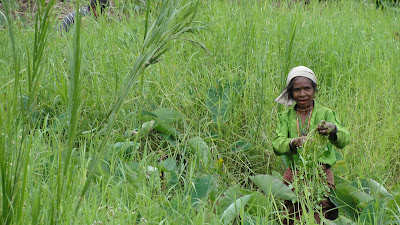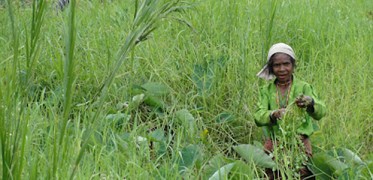
UMaine Article About SPIA Internships
UMaine’s Department of University Relations profiled several SPIA students interning around the world this summer. Article re-posted below (link here).
World Affairs Through The Eyes of Interns
Ian Henderson, a second-year UMaine School of Policy and International Affairs student from Hampden, Maine, who is pursuing a master’s degree in global policy, wanted an international internship that would expose him to reform in the Arab world.
He found one. Henderson secured an internship with the Ibn Khaldun Center in Cairo, Egypt, a non-governmental organization that focuses on and researches reform in the Arab world as it affects democracy, women’s rights, and free and fair elections.
Less than two weeks later, Henderson found himself watching an historic Egyptian political event in Tahrir Square. The square was the coalescence of Egyptian protests, then jubilant praise, from supporters of the Muslim Brotherhood, which was declared the winner of the country’s recent presidential election. The election is being called the country’s first democratic election.
“(The internship) will allow me to look at Arab reform from a truly Arab perspective, which in and of itself will be a unique opportunity,” he wrote in his first blog post on the SPIA Abroad internship website.
“I’ve gotten to see a calm-ish Cairo in the lead up to the run off elections this past weekend, and was able to talk to quite a few people on their thoughts, positive and negative, regarding the run off,” he said in an email. “It has been a bit
dicey since then, particularly since (June 19) when Tahrir Square filled again. I went down (to Tahrir Square later in the week). While I kept my distance, it was a mass of humanity; the shots on TV do it no justice.”Henderson is one of eight SPIA graduate students engaged in and blogging about their summer internships in places as far away as East Timor, Egypt, Kenya and Chile and as close as Washington, D.C. and Rockland, Maine. Eight other students in the program either have already or will also participate in internships as a requirement of their degrees. The SPIA internship program is different from typical study abroad experiences in that its focus is on experiences that affect global policy, often with the agencies the students may ultimately work for later, according to SPIA’s assistant director, retired U.S. Navy Capt. Jim Settele.
The two-year, 33-credit hour interdisciplinary master’s program offered through the UMaine Graduate School has three concentration options: International Environmental Policy; International Trade and Commerce; and International Security and U.S. Foreign Policy. Approved by University of Maine System Trustees in 2010, the program is attractive to students with international affairs or economics backgrounds, but any bachelor’s degree is acceptable. Some 40 UMaine professors from multiple disciplines, including political science and economics, teach core and elective classes.
“It’s a small program with a lot of personal attention,” says Settele, who advises the students. Settele calls the internships, which add both depth and realism to academic studies, life-changing.
Muna Abdullahi, for example, is a second-year SPIA student from Somalia who is doing independent research on gender issues in the refugee camps along the Kenya-Somali border, where she herself has family and spent time as a young girl.
She is working with several of the agencies that are helping refugees in the camps.
“All the women here have their faces covered,” she blogged on May 23, 2012. “I didn’t find this unusual but I think it’s important to note because sexual-based violence and the night raids are common. I believe that is too hot to have my face covered here. Although I would argue that it provides great protection against the heinous stench plaguing the air.
It is very overwhelming being here because people are constantly walking towards me with their hands out, begging for money.”
Abdullahi hopes to work for one of the non-government humanitarian organizations in northeast Africa helping Somali women and children when she finishes her degree.
“Muna is going to come back from this and she’s going to be a different person,” Settele says. “You can’t come back from an experience like that and not be impacted in a significant way.”
The degree in global policy is a professional degree, usually leading to a job afterwards, rather than continued education. Upon acceptance in the program, students research possible internship opportunities with counsel from Settele or members of the SPIA advisory board, a well-connected group of international experts, including active or retired diplomats, business executives or U.S. ambassadors in Washington, D.C. or retired and living in Maine.
Financial support from the Daniel and Betty Churchill Internship Fund, the Peter T. Madigan Internship Fund, and the Penelope S. Wolfe Fund assist with students’ expenses during their internships. To ensure student safety, Settele and SPIA Director Mario Teisl consult with agencies or embassies with which the students are connected to be sure the students are looked after.
“We’re building some incredible relationships,” Settele says. The program is “a tremendous example of how to pull in expertise, how to pull in benevolency, and pull in amazing people to extend your learning experience.”
Another student intern is Eric Bailey of Milo, who is at the Washington-based Potomac Institute’s International Center for Terrorism studying antiterrorism measures for the 2012 Summer Olympics in London. He is working with one of the world’s leading antiterrorism experts, professor and center director Yonah Alexander, studying the creation of the Taliban, the history al-Qa’ida leading up to the events of 9/11, and the history of terrorism in Afghanistan.
Kate Kirby of Orono is currently in East Timor with Mercy Corps examining aquaculture and assessing the potential impact of inland fisheries projects on increasing food security.
Others are at the African Center for Strategic Studies at Fort McNair in Washington, D.C., a U.S. Department of Defense organization for strategic security studies, research and outreach in Africa; in Rockland working with the Island Institute as part of the UMaine-led DeepCwind Consortium; and in Santiago, Chile, working through the U.S. Embassy to see how trade between Chile and Maine might be increased.
Settele says more than half of the students are from Maine and earned undergraduate degrees elsewhere but came to UMaine to pursue SPIA’s Master of Arts in global policy.
SPIA was created in 2007 to encourage collaboration among faculty and departments with interests in international affairs and global policy. SPIA collaborated with an independent, community-based speakers bureau, the Bangor Foreign Policy Forum, and sponsored its own lectures on campus. SPIA initiated its educational component in 2010 with its first cohort of five students, who graduated in May. SPIA will have 21 students in the fall.
Contact: Jim Settele, (207) 581-1835

